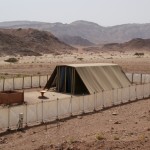Congregation Beth Mordecai
Congregation Beth Mordecai
An inclusive congregation affiliated with the Conservative Movement.
Your Jewish Home for the Soul!
An inclusive congregation affiliated with the Conservative Movement.
Your Jewish Home for the Soul!
May 30, 2014 By bethmordecai no comments.
 Parashat Naso 2014/5774 (Triennial I) -- The Relationship Between the Mundane and the Holy
Judaism teaches that there is a separation between "hol," what is mundane in life, and "kodesh," what is holy. Yet, is this separation permanent? Are there ways to connect the mundane to the holy, to make each act of life a sanctification of God? Join us for this week's Parashah class as we use the teachings of Hasidic master R. Tsaddok Hakohen of Lublin on Parashat Naso to explore this question.
Parashat Naso 2014/5774 (Triennial I) -- The Relationship Between the Mundane and the Holy
Judaism teaches that there is a separation between "hol," what is mundane in life, and "kodesh," what is holy. Yet, is this separation permanent? Are there ways to connect the mundane to the holy, to make each act of life a sanctification of God? Join us for this week's Parashah class as we use the teachings of Hasidic master R. Tsaddok Hakohen of Lublin on Parashat Naso to explore this question.
Category : Online Learning Online Parashah Class Tag : clerics expectations holiness holy israelites levites mundane naso online learning online parshah class potential rabbis weekly torah portion נשא
May 23, 2014 By bethmordecai no comments.
 Parashat B'midbar 2014/5774 (Triennial I) -- Size Doesn't Matter
In this week's Torah portion we read how the Tent of the Meeting is the place for Israel to gather and the place to house God's Presence in their journey through the desert. But how can one small place contain so many people and so much glory? It seems too small! Yet, there are other places in the Bible where "what is less is able to contain what is more." Can this teach us about the importance of "size" in the Bible, especially given the small size and great impact of the Jewish people? Is it possible that when it comes to things that[...]
Parashat B'midbar 2014/5774 (Triennial I) -- Size Doesn't Matter
In this week's Torah portion we read how the Tent of the Meeting is the place for Israel to gather and the place to house God's Presence in their journey through the desert. But how can one small place contain so many people and so much glory? It seems too small! Yet, there are other places in the Bible where "what is less is able to contain what is more." Can this teach us about the importance of "size" in the Bible, especially given the small size and great impact of the Jewish people? Is it possible that when it comes to things that[...]
Category : Online Learning Online Parashah Class Tag : b'midbar bamidbar chosen people numbers online learning online parashah class parashah parsha parshah size tent of meeting weekly torah portion במדבר
May 16, 2014 By bethmordecai no comments.
 Parashat B'hukkotai 2014/5774 (Triennial I) -- Is The Earth At Fault
We normally think of the earth and all it contains as being some of the most beautiful creations of God. Throughout the Torah, the earth is laid to waste when humans commit sins, a trope that has become very popular today in environmentalist circles. But is it possible that according to our Torah portion today, Parashat B'hukkotai, the blame for human transgression should not be laid solely at the feet of humanity? Should the earth bear some responsibility for the transgressions that lay it bare? Check out today's class for this fascinating conversation!
Parashat B'hukkotai 2014/5774 (Triennial I) -- Is The Earth At Fault
We normally think of the earth and all it contains as being some of the most beautiful creations of God. Throughout the Torah, the earth is laid to waste when humans commit sins, a trope that has become very popular today in environmentalist circles. But is it possible that according to our Torah portion today, Parashat B'hukkotai, the blame for human transgression should not be laid solely at the feet of humanity? Should the earth bear some responsibility for the transgressions that lay it bare? Check out today's class for this fascinating conversation!
Category : Online Learning Online Parashah Class Tag : abundance earth environmentalism human impact human nature k'li yakar keli yakar keli yaqar online learning online parashah class parasha parsha parshah torah weekly torah portion בחוקותי
March 21, 2014 By bethmordecai no comments.
2014/5774 (Triennial I): A Strange Fire? In this week's Torah portion, Aaron's sons Nadav and Avihu bring an "eish zarah," a strange fire, to the tabernacle and instead of having their gift accepted, they are personally consumed by a fire from God. What went wrong? What was this strange fire that God not only rejected but caused God to kill them? Can we learn anything from this episode about how we should or should not approach God in our worship? Join the class to find out! Classes from other years... 2013/5773 -- Why Is Pig So Unkosher? Details of Photo The Death of Nadab and Abihu, engraving by[...]
Category : home Online Learning Online Parashah Class Tag : aaron avihu fire nadav online learning online parashah class parashah parsha parshah sh'mini shemini weekly torah portion worship
March 14, 2014 By bethmordecai no comments.
 Parashat Tzav (צו) Triennial I (2014/5774): The Always Burning Flame
Fire is often used as a metaphor for motivation, as in the phrase "to have a burning passion." Also, like motivation, fire is a limited resource that can only burn when it has enough fuel. Yet, our Torah portion today speaks of an "always burning flame" upon the altar that seemingly does not need to be renewed. Is it possible that like this burning flame, our own passion and motivation can be constant WITHOUT the need for refuel? Check out the class to find out!
Parashat Tzav (צו) Triennial I (2014/5774): The Always Burning Flame
Fire is often used as a metaphor for motivation, as in the phrase "to have a burning passion." Also, like motivation, fire is a limited resource that can only burn when it has enough fuel. Yet, our Torah portion today speaks of an "always burning flame" upon the altar that seemingly does not need to be renewed. Is it possible that like this burning flame, our own passion and motivation can be constant WITHOUT the need for refuel? Check out the class to find out!
Category : Online Learning Online Parashah Class Tag : eternal flame fire motivation online learning online parashah class parsha passion tsav tzav weekly torah portion צו
February 14, 2014 By bethmordecai no comments.
 This Week's Online Parashah Class: Parashat Ki Tissa -- From Cannabis To Shabbos: Does Judaism Embrace or Control Our Desires?
2014/5774 (Triennial I) -- From Cannabis To Shabbos: Does Judaism Embrace or Control Our Desires?
Religion is often seen as a "conservative" movement that focuses its efforts on restricting our behaviors. However, is it possible that religion actually helps us embrace our desires rather than trying to make them go away? Should we make use of all there is to offer in this world, or are[...]
This Week's Online Parashah Class: Parashat Ki Tissa -- From Cannabis To Shabbos: Does Judaism Embrace or Control Our Desires?
2014/5774 (Triennial I) -- From Cannabis To Shabbos: Does Judaism Embrace or Control Our Desires?
Religion is often seen as a "conservative" movement that focuses its efforts on restricting our behaviors. However, is it possible that religion actually helps us embrace our desires rather than trying to make them go away? Should we make use of all there is to offer in this world, or are[...]
Category : Online Learning Online Parashah Class Tag : desires incense ki tisa ki tissa marijuana online learning online parashah class parsha shabbat song of songs weekly torah portion yetzer hara yetzer hatov
February 7, 2014 By bethmordecai no comments.
 2014/5774 (Triennial I) -- The Torah's View of Brotherly Love
In the Bible, brothers often don't get along. Cain killed Abel, Jacob stole Esau's birthright, and Joseph's brothers sold him into slavery. But are there more positive examples than these negative portrayals of sibling rivalry? Using wisdom from this week's Torah portion, Parashat T'tzaveh, and some teachings from the midrash, we will take a look at how the Torah does relate a positive example of brotherly love by way of the relationship between Moses and Aaron and what their example can teach us about what it means to have a positive relationship with our siblings.
Photo courtesy of Jim Hammer on[...]
2014/5774 (Triennial I) -- The Torah's View of Brotherly Love
In the Bible, brothers often don't get along. Cain killed Abel, Jacob stole Esau's birthright, and Joseph's brothers sold him into slavery. But are there more positive examples than these negative portrayals of sibling rivalry? Using wisdom from this week's Torah portion, Parashat T'tzaveh, and some teachings from the midrash, we will take a look at how the Torah does relate a positive example of brotherly love by way of the relationship between Moses and Aaron and what their example can teach us about what it means to have a positive relationship with our siblings.
Photo courtesy of Jim Hammer on[...]
Category : Online Learning Online Parashah Class Tag : aaron brotherly love moses online learning online parashah class parsha siblings t'tzaveh tetzaveh weekly torah portion
January 17, 2014 By bethmordecai no comments.
 2014/5774 (Triennial I) -- Getting "Buy In"
Any successful leader or organization needs the people they serve or emply to "buy in" to the vision they are selling or promoting. Without that buy in, where's the motivation to do the work and to do it together? The same holds true for Moses -- was he able to get buy in from his leaders and from the people to promote the values of the Torah? What's more, how can we who live so many thousands of years after the Revelation of Torah buy into what the Torah is selling? We will discuss these questions and more during today's online parashah class
2014/5774 (Triennial I) -- Getting "Buy In"
Any successful leader or organization needs the people they serve or emply to "buy in" to the vision they are selling or promoting. Without that buy in, where's the motivation to do the work and to do it together? The same holds true for Moses -- was he able to get buy in from his leaders and from the people to promote the values of the Torah? What's more, how can we who live so many thousands of years after the Revelation of Torah buy into what the Torah is selling? We will discuss these questions and more during today's online parashah class
Category : Online Learning Online Parashah Class Tag : buy in delegate God leadership mission moses online learning online parashah class parsha weekly torah portion yitro
January 10, 2014 By bethmordecai no comments.
2014/5774 (Triennial I) -- Parashat B'shalah: How Do We and God Interact in this World?
Parashat B'shalah, with it's famous story of the splitting of the Sea of Reeds, seems to teach us how God can come down to the human world and save human beings, like the Israelites. Yet towards the beginning of the parashah in Exodus 13:8, the Torah teaches us that the Isralites left Egypt "armed" (hamushim) -- why would they need to be armed if God was going to save them from the Egyptians? Shouldn't they just have had faith without the need to physically protect themselves? Or does God want us to protect ourselves before stepping[...]
Category : Online Learning Online Parashah Class Tag : armed b'shalach b'shalah b'shallach beshalach beshallach exodus God hamushim interact israelites joseph joshua learning online learning online parashah class parsha pharaoh rabbi arieh trugman souls weekly torah portion
January 3, 2014 By bethmordecai no comments.
Last week's Online Parashah Class: Parashat Bo 2014/5774 (Triennial I) -- Pharaoh’s Egypt: By the People, For the People? By most accounts, the Pharaohs of ancient Egypt were God-like figures who had God-like powers over their subjects. Yet, in our Parashah which describes the last moments before the Israelites are freed from Egypt, it seems that the people have a little more power than you’d expect under Pharaoh’s rule. Is this example of populous pressure a hint of the move towards more popular centered rule, like democracy? Classes from other years... (2013/5773) Triennial III -- Leaving in Haste: On the Israelites Being Freed From Egypt
Category : Online Learning Online Parashah Class Tag : democracy egypt israelites online learning online parashah class parasha parsha people pharaoh populist revolution torah weekly torah portion